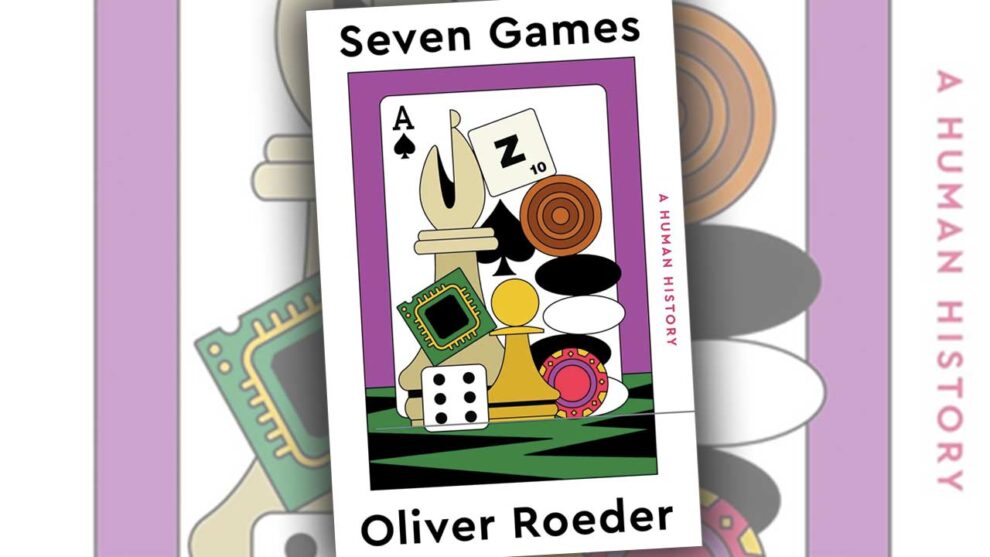Oliver Roeder has an interesting background. After completing a Ph.D. in economics focusing on game theory, he became a writer for FiveThirtyEight.com, the ABC News website that looks at American politics. (538 being the total number of officials in the Electoral College that decides the winner of the Presidency) While there, Roeder wrote about crossword puzzles, Chess, and was the editor of their weekly online puzzle.
He recently took a new job with The Financial Times, leading the paper’s Data Journalism team. There he’s written about Fantasy Football, Backgammon, and Poker.
In between those jobs, he received a grant to write Seven Games, (W.W. Norton, 2022) a book about, you guessed it, seven games. The book’s subtitle, “A Human History”, is misleading, but only slightly so.
Roeder provides a brief history of each of the seven games he covers (Checkers, Chess, Go, Backgammon, Poker, Scrabble, and Contract Bridge) and then focuses in on a single person, someone who became obsessed with the game—and had the programming skills to create a computer program capable of playing the game. And beating human opponents.
Just as each of these seven games provides a different set of mechanics and decision spaces, each of the programmers discussed had to improvise a new way of creating a worthy digital opponent. The initial programming behind Checkers, for instance, was done by first ‘teaching’ a computer the rules of the game and then manually entering famous games from history. This allowed the computer to learn by example. Go, on the other hand, was approached with better, faster computers that were able to play thousands and thousands of games against itself until it developed new ways to approach the game—ways that have since changed the way Go experts play.
The programmers here are not all just in it for the challenge. The programmers behind better Scrabble and Poker play offer their software to players for a fee. (A hefty fee, in some cases.) Many tournament Scrabble players will, for instance, take their record of the game they just played and feed it into the software to impartially analyze the game and see where they could have played better words.
The chapter on Contract Bridge is a sad one. The game was once extremely popular across the world. Bridge tournaments were covered in local newspapers and most papers carried a Bridge column. (I was taught the game in Elementary School in the 1960s, as part of a pre-academically gifted class experiment. I still know how to play, but I also remember being terribly bad at it.) People would gather in groups of four to play day and night. As we have found with modern board games, Bridge, a game where two teams of partners work to take the most tricks, provides an activity that is as much about the social interactions as it is with the cards in play. Bridge has been all-but abandoned by the majority of the card-playing world, overtaken by the high-stakes, televised world of Poker. The once popular magazine, The Bridge World is now only offered in a large-print edition in a nod to its aging readership.
Seven Games is as detailed as it is readable. Roeder’s writing is approachable, inviting you to join him on a discovery into the deeper reaches of each game and into the world of people who program (sometimes competitively) and the people who love playing each of these seven games.












Note to self — get this book.
🙂